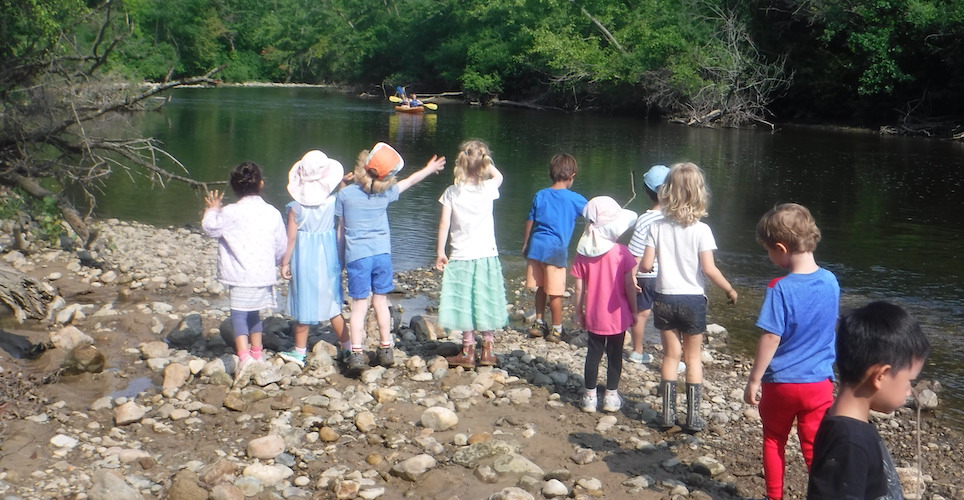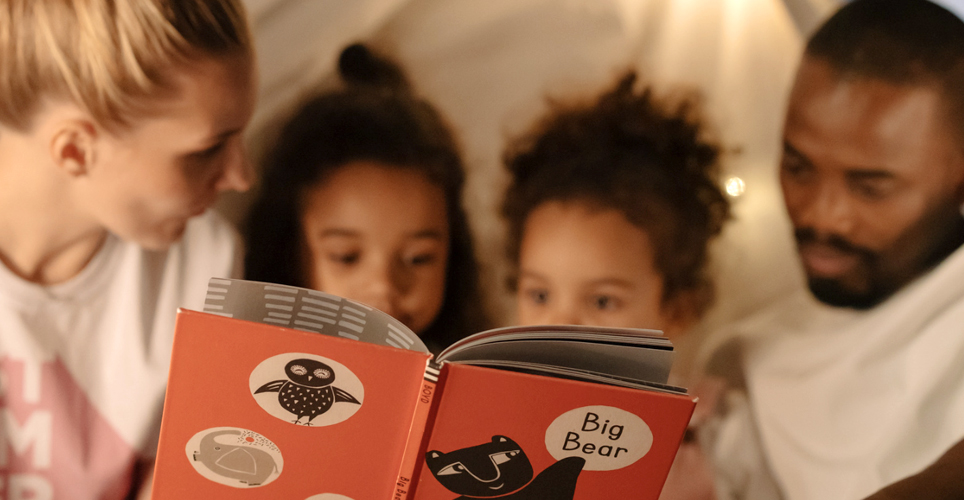
Caring for Kids is a monthly article series brought to you by the early childhood education experts in Child and Family Care and Children’s Centers.
Spending time outside is not only fun but also incredibly important for children's development. When kids play outdoors, they get to enjoy fresh air, have space to move around, and make as much noise as they like! It's a place where they can take healthy risks, unplug from electronic devices, and just be themselves.
“Outdoor play offers a wide range of benefits for children. It helps them build physical strength, coordination, and motor skills as they run, jump, and climb,” says Christine Snyder, Director of Child and Family Care. “To increase the time you spend outside, it may be helpful to try out new activities, invest in outdoor clothing, explore new spaces, or meet up with people you love.”
Playing outdoors and exploring nature also engages children’s senses which fosters their cognitive growth, creativity, and critical thinking. Through interacting with other children, they develop social skills, learn to share, solve problems, and work together. Here are more reasons to make time for nature and outdoor play:
- Thinking and Exploring - Nature is full of interesting things to see, hear, and touch. Being outside makes kids think and learn in fun ways. It helps them use their brains and be creative.
- Feeling and Sharing - Playing with other kids outside helps them learn to be nice, share, and solve problems together.
- Taking Care of Earth - When kids play outside, they learn to love nature. They understand why it's important to keep the Earth clean and take care of animals and plants.
- Calm and Focus - Being in nature helps kids feel less stressed and tired. When they go back inside, they can think and pay attention better.
- Learning by Doing - Outside, kids can touch, see, and do things they can't in a classroom. They learn about plants, animals, and how things work by trying them out.
- Using Imagination - Kids can make up games and stories outside. They use their imagination and come up with new ideas.
- Staying Healthy - Sunlight outside gives kids vitamin D, which is good for their bones and helps them stay healthy. It also keeps their eyesight strong.
Christine Snyder adds one final benefit, “As your kids get stronger, think better, feel happier, and learn important things, by exploring nature together, you are also creating shared experiences that can create lasting memories.”
Suggested Resources to Learn More About Outside Play
Why Outside Play is Important
- Rocking and Rolling. Fresh Air, Fun, and Exploration: Why Outdoor Play Is Essential for Healthy Development | NAEYC
- 6 reasons children need to play outside - Harvard Health
Finding Places to Play and Explore
- Ann Arbor Playground Profiles
- Southeast Michigan ParkFinder
- Parks, Preserves, Trails | Washtenaw County, MI
100 Ideas for Engaging Children Outside
- 50+ Ways Outdoor Education Can Help Child Development | Forest Holidays
- 50 Fun Things to Do Outside With Kids as a Family
Nature-based Classrooms at the U-M Children’s Centers
Two of the three U-M Children’s Centers have nature-based classrooms. They emphasize outdoor play and exploration in natural environments to foster a pathway to learning. In these programs children spend a significant portion of their day outside, regardless of weather conditions, engaging in play-based activities such as hiking, climbing, gardening, and building forts.
“I am inspired by their play, their curiosity, and their wonder,” says lead teacher Maggie Fritz, Apple Blossom Classroom at the North Campus Children’s Center. “In nature we have everything we need to learn and thrive, with the environment everchanging and spontaneous, while also providing patterns, routines, and stability. We are learning and growing together, child, adult and nature as our teachers.
The outdoor curriculum is designed to encourage children's creativity and critical thinking skills through experiences in nature, and is often structured around the changing seasons. For the kids, spending time in nature promotes physical, emotional, and cognitive development, as well as a deeper sense of connection and stewardship toward the natural world.
“We observe the children playing in nature and cultivate experiences to encourage and highlight their relationship to the natural world,” adds lead teacher Christian Boyer, the Oak Classroom at Towsley Children’s House. “ My favorite aspect to this work is the chance to be present - observing, searching for details and moments to celebrate.”
